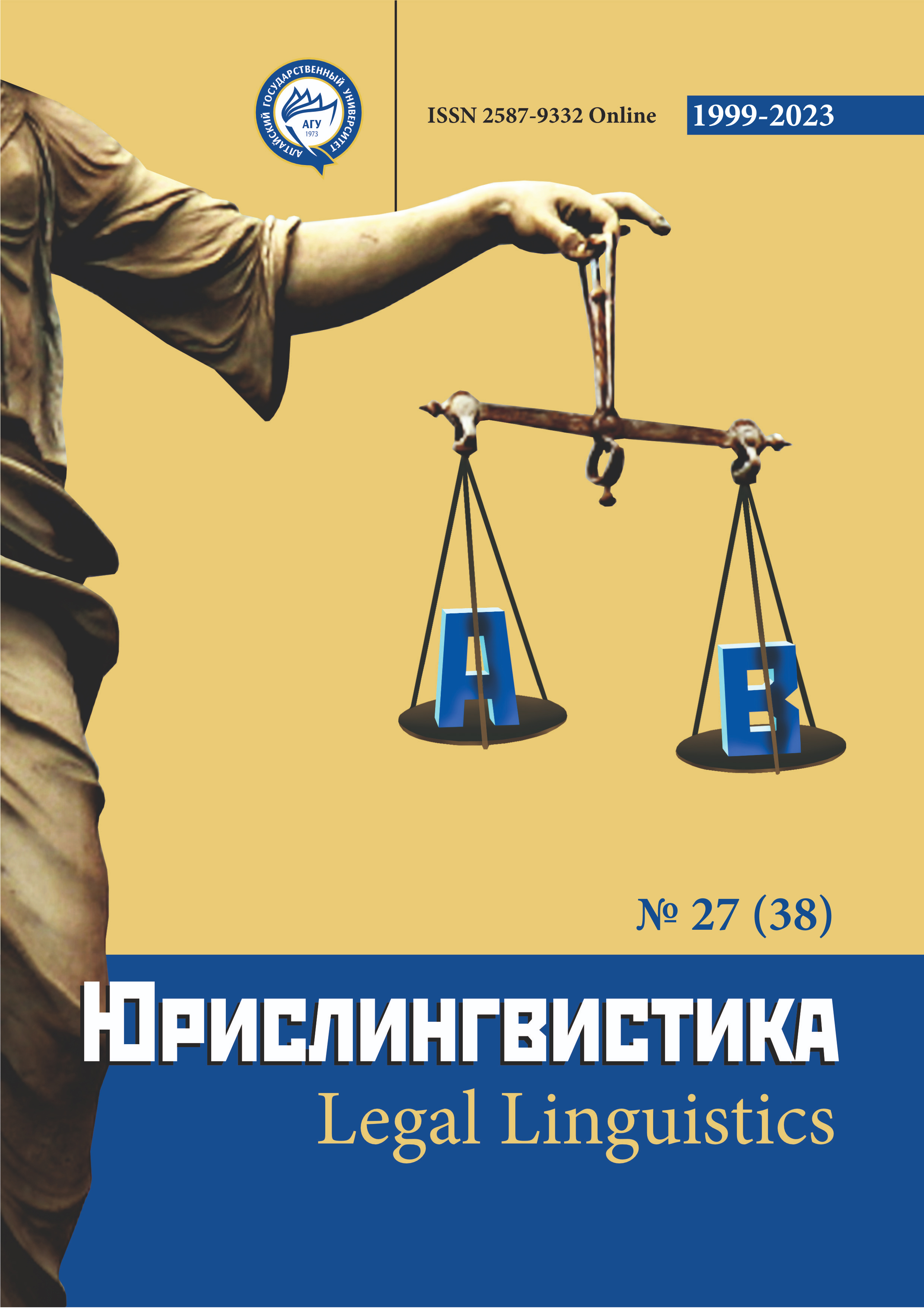Some Challenges of Defining the Legal Status of Publication Hashtagging on Social Networks
УДК 34.09 ББК 67.5
Abstract
The article covers the study of the legal status of hashtagging. The relevance of the study is predetermined by the increased danger of mass control technologies applied to Russian youth through the Internet. The research methodology includes general methods of scientific research - analysis, synthesis, systemic, logical, as well as special methods, including comparative legal method. The method of comparative legal research allows us to highlight the main problems of hashtagging legal regulation. The study includes three main stages: (1) - analysis of the basic regulations in the area under study and identification of contradictions in legal regulation; (2) -analysis of the current situation as a practical matter of defining hashtagging as a phenomenon that is not relevant for legal reality; (3) – outlining the way to resolve the existing contradiction in the legislative regulation and practice.
The main challenge found is the ambiguity in defining the legal status of hashtags in isolation from the text of publications. As a result of the work done, the author comes to the conclusion that it is necessary to improve the legislation aimed at regulating the legal status of hashtagging and to clarify this through the supreme judicial authorities.
Downloads
Metrics
References
Абазов К. М. Проблема использования современных информационно-коммуникационных технологий международными террористическими организациями / Вопросы безопасности. – 2018. – № 3. – С. 1-9.
Абдулатипов А. М. Понятие информационного терроризма / Юридический вестник Дагестанского государственного университета. – 2019. – № 2. – С. 105-111.
Бутусова Л. И. К вопросу о киберпреступности в международном праве / Вестник экономической безопасности. – 2016. – № 2. – С. 48-52.
Выручаев А. А. Правовой статус Российской академии наук (современные правовые проблемы) / Известия Института государства и права РАН. – 2008. – С. 1-10.
Лутовинова О. В. Языковая игра в интернет-коммуникации / Известия ВГПУ. – 2015. – № 2 (97). – С. 104-111.
Мазуров В. А. Кибертерроризм: понятие, проблемы противодействия / Доклады ТУСУР. – 2010. – № 1–1 (21). – С. 41-45.
Письмо Минобрнауки России от 31.03.2017 N ВК-1065/07 О направлении методических материалов. URL: https://sudact.ru/law/pismo-minobrnauki-rossii-ot-31032017-n-vk-106507/pismo/ (дата обращения: 09.09.2022)
Решение Советского районного суда от 30 января 2019 г. № 2-68/2019. URL: https://sudact.ru/regular/doc/xCGGmcUBtqm4/ (дата обращения: 09.09.2022).
Copyright (c) 2023 Мария Стародубцева

This work is licensed under a Creative Commons Attribution 4.0 International License.
The authors, which are published in this journal, agree to the following conditions:
1. Authors retain the copyright to the work and transfer to the journal the right of the first publication along with the work, at the same time licensing it under the terms of the Creative Commons Attribution License, which allows others to distribute this work with the obligatory indication of the authorship of this work and a link to the original publication in this journal .
2. The authors retain the right to enter into separate, additional contractual agreements for the non-exclusive distribution of the version of the work published by this journal (for example, to place it in the university depository or to publish it in a book), with reference to the original publication in this journal.
3. Authors are allowed to post their work on the Internet (for example, in a university repository or on their personal website) before and during the review process of this journal, as this may lead to a productive discussion, as well as more links to this published work (See The Effect of Open Access).











